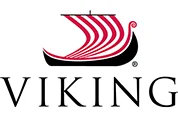DuPont today declared victory in its proxy fight with activist investor Nelson Peltz's Trian Management as shareholders rejected his bid to win four seats on the company's 12-member board.
In one of the largest proxy battles in US history, Trian, working with Sard Verbinnen & Co., claimed DuPont was mismanaged and saddled with a bloated cost structure. Kekst & Co. and Joele Frank represented the chemical giant.
Shareholders approved each of the dozen DuPont director nominees in a victory for CEO Ellen Kullman, who said the vote shows strong support for management's "strategic vision and continued execution of our plan."
Peltz blamed the loss on DuPont doing a "better job with the press and retail shareholders who really don't understand the issues of the company."
He said the two-year battle created substantial value for all stockholders.
"Since we first invested in mid-2013, DuPont has upgraded its Board of Directors, authorized a $5 billion share buyback, begun a long-overdue cost cutting initiative, improved the design of its executive compensation program, and announced the separation of Chemours with a $4 billion return of capital. We don’t believe these actions would have happened without our involvement," Trian said in its statement.
Trian promised to continuing monitoring the performance of the 212-year-old company.
According to FactSet, a Trian victory would have made DuPont the biggest company to lose a board seat in a vote.
SardVerb CEO George Sard, principal Carissa Felger and senior associate Amanda Klein, worked Trian's attack.
Kekst, which continues as DuPont's strategic communications counselor, used Lissa Perlman, senior VP/corporate governance practice chief; managing directors Andrea Calise, Lyndsey Estin, Kathy Deveny, Jim David; and principal Anntal Silver in the proxy defense effort.
JF's managing partner Joele Frank; partners Jamie Moser, Andi Rose; and directors Aaron Palash, Adam Pollack worked DuPont's defense.


 Edelman handles Viking Holdings, the river and ocean luxury cruise line that plans to raise $1B via an IPO priced in the $21 to $25 per share range.
Edelman handles Viking Holdings, the river and ocean luxury cruise line that plans to raise $1B via an IPO priced in the $21 to $25 per share range. Teneo is handling the initial public offering of CVC Capital Partners, one of Europe’s largest private equity firms with nearly $200B in assets under management.
Teneo is handling the initial public offering of CVC Capital Partners, one of Europe’s largest private equity firms with nearly $200B in assets under management. Brunswick Group represents Endeavor Group Holdings as it agrees to go private via its acquisition by Silver Lake technology investment firm, which is handled by Edelman Smithfield.
Brunswick Group represents Endeavor Group Holdings as it agrees to go private via its acquisition by Silver Lake technology investment firm, which is handled by Edelman Smithfield. Tod Donhauser, a nine-year veteran of Edelman, has joined H/Advisors Abernathy as managing director and head of its San Francisco office.
Tod Donhauser, a nine-year veteran of Edelman, has joined H/Advisors Abernathy as managing director and head of its San Francisco office. Intelligent Group Ltd, a Hong Kong-based financial PR firm, has priced its initial public offering of 1.9M shares at $4, which is the low end of the $4 to $5 range.
Intelligent Group Ltd, a Hong Kong-based financial PR firm, has priced its initial public offering of 1.9M shares at $4, which is the low end of the $4 to $5 range.


 Have a comment? Send it to
Have a comment? Send it to 
No comments have been submitted for this story yet.